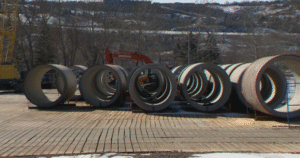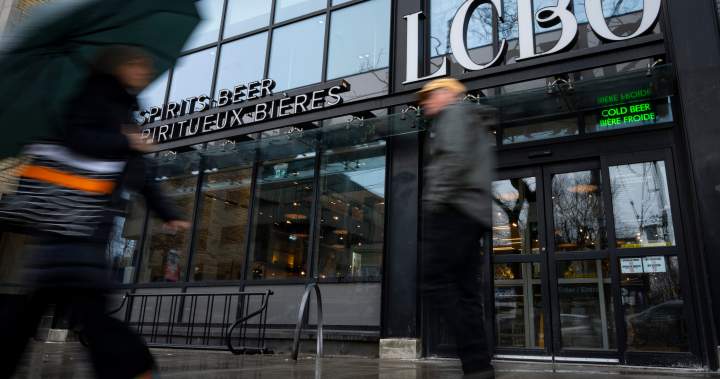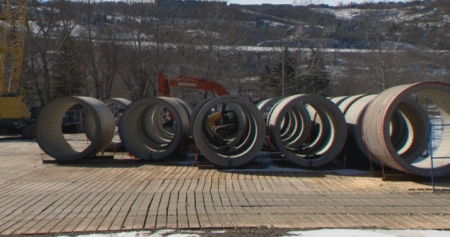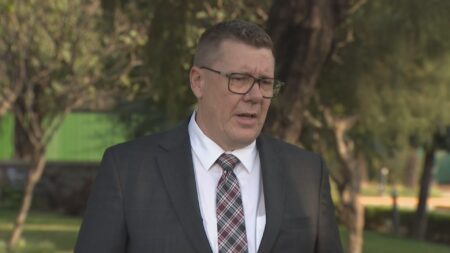More than a year after Premier Doug Ford allowed convenience stores and more grocery stores to begin selling alcohol, Ontario’s publicly owned liquor store is grappling with falling revenue.
The Fall Economic Statement projects that for the first time in a decade, LCBO will take in less than $2 billion.
The drop in money brought in by the Crown corporation after alcohol market changes is something the employees repeatedly warned about during a strike last summer.
Toward the beginning of 2024, the Ford government announced it had agreed to a $225 million fee with the Beer Store to break its contract as an exclusive alcohol retailer.
That fund — which ordered the Beer Store to keep 300 stores open — allowed the government to expand alcohol sales across the province.
During the summer, against the backdrop of a major strike at the LCBO, convenience, grocery and big box stores were all given the right to sell alcohol.

Get breaking National news
For news impacting Canada and around the world, sign up for breaking news alerts delivered directly to you when they happen.
The weeks-long strike came as workers raised concerns about job security and the future of the Crown corporation as a result of alcohol liberalization.
They said allowing convenience stores to sell ready-to-drink beverages, in particular, could tank sales at LCBO stores, lead to closures and layoffs.
To resolve the strike, the government agreed not to close any LCBO stores until at least 2027, even if they lost revenue as a result of the liberalization strategy.
The Fall Economic Statement shows, in the year since the strike, convenience stores have seen a jump in customers and the LCBO’s revenue has fallen.
According to the financial update, convenience stores have seen a 12 per cent increase in foot traffic as a result of that change, rising to 33 per cent on long weekends, when the LCBO and Beer Store are generally closed.
At the same time, revenues at the LCBO are set to drop below $2 billion for the first time in at least 10 years. Figures show the government expects the Crown corporation to pull in $1.85 billion in the current year, down 15 per cent from $2.17 billion the year before.
Overall, alcohol tax revenue is expected to drop, too, suggesting the increasing number of sales points for alcohol isn’t bolstering the government’s coffers.
In 2022-23, alcohol taxes in Ontario were worth $600 million to the treasury, dropping to $593 million the following year. By 2024-25, the figure fell to $530 and is expected to drop again this year to $415 million.
The figure would represent a 31 per cent drop in alcohol tax revenue for the province over just four years.
From next year, the LCBO will become the exclusive wholesaler of alcohol in Ontario, including deliveries of all products to bars and restaurants, a move the government hopes will ensure its future.
Officials with the Ministry of Finance told reporters the drop in alcohol tax revenues comes as people continue to drink less than they used to. They said the LCBO was seeing falling revenues as a result of wholesale discounts, reduced margins and the cost of setting up its expanded delivery network.
Since the removal of U.S.-made alcohol from its stores, sales of Ontario products have also increased 33 per cent, while Ontario VQA wine is up 79 per cent.
© 2025 Global News, a division of Corus Entertainment Inc.
Read the full article here














